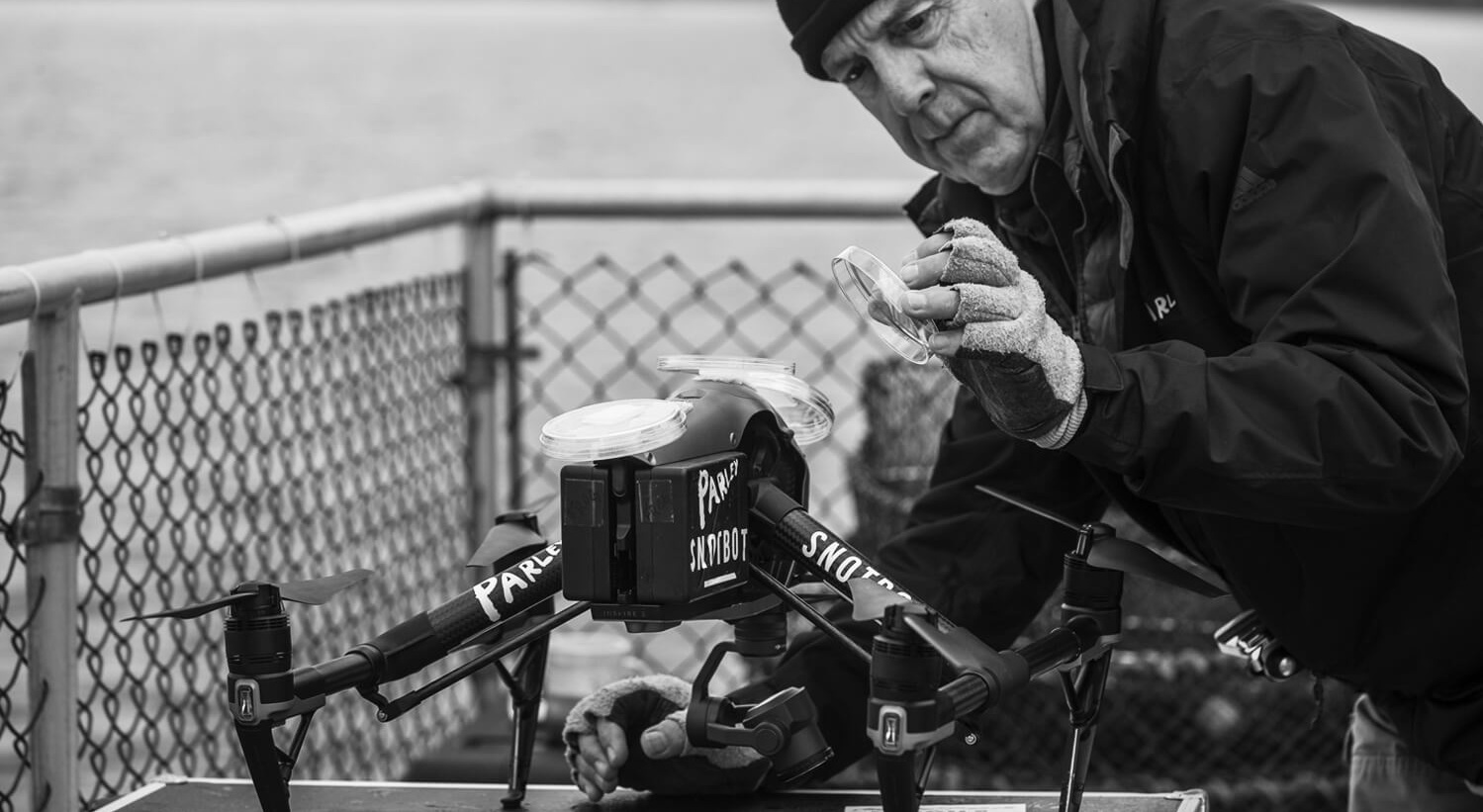CEO of Ocean Alliance • Inventor of SnotBot® • Led an epic five year expedition to measure the health of the world’s oceans
Photo by Christian Miller
Dr. Iain Kerr is the driving force behind Parley SnotBot® and the CEO of Ocean Alliance, an organization recognized as an international leader in whale research and ocean conservation since its founding by renowned scientist Dr. Roger Payne in 1970.
Iain has lead research expeditions all over the globe for the last 20 years with Ocean Alliance, including the Patagonia Right Whale Program and the Voyage of the Odyssey – a five year expedition to measure the health of the world’s oceans.
Photo by Christian Miller
Photo by Christian Miller
“71% of our planet is covered by water. That means whoever called it Planet Earth should be fired. It’s not Planet Earth, it’s Planet Ocean.”
– Dr. Iain Kerr
Q&A
What have you learned about whales since SnotBot® started flying?
SnotBot® did not only change the way we collect biological data from whales non-invasively, it also changed the way that we are thinking about studying whales in the future. To me, Drones for Whale Research like SnotBot® are a game changer equivalent to when a biologist looked down a microscope for the first time and saw a whole new world. What we have learnt is that we need more affordable, field-friendly tools to study whales and democratize ocean science globally.
What do we still not know?
It is said that we know more about the surface of the Moon than our own oceans, so what we don't know about the animals living in this mystery world can be overwhelming. This is also great opportunity for scientists like me. Whales are one of the most difficult species on the planet to study (a giraffe does not disappear under the Serengeti and re appear five miles away) yet we know enough to keep the scientific adventure compelling and interesting. When I first started studying whales, the major threat to them was commercial whaling. Now it is a suite of threats: pollution, ship strikes, entanglement in lines, habitat loss, climate change. Since we have no proverbial smoking gun we have to work ever harder to understand how humanity is threatening these marine mammals and how we can change our behavior to save whales and our oceans.
Why are whales so vital for the oceans – and us?
First of all, I don't want to live on a planet without whales, they have played a big role in our culture for centuries – whether it be a dolphin embossed on an 65 BC Greek coin or Dr. Payne discovering that they sing complex songs in the 1960’s. The diversity and emotion that this species brings to our lives is priceless. As a mammal, they are also a great bioindicator species for the health of our ocean… healthy whales, healthy oceans, healthy humans. We are now also better understanding how they play an important role in ocean productivity – check out Parley’s article about the poop loop for more on this.
Where would your dream expedition take you?
While a lot of the surface of this planet ocean has been explored there are still discoveries to be made in the deep, and in some of the remotest parts of this planet. Affordable tools like SnotBot® are giving us the opportunity to travel to difficult locations and collect more data at an affordable price point than we ever could before. One of my favorite locations was the Northern shore of Papua New Guinea. This is a region that is poorly researched and that evokes stories of books like the land that time forgot, or as the old sailing charts used to say; Here be Dragons!
Do you have a favourite whale?
I am interested in the biology of whales, how they manage to live their lives in one of the harshest environments in the world. Whether it be diving down into the abyss to catch their food or making sounds that cross ocean basins. A favorite whale of mine has long been the Cachalot, or sperm whale, best known in literature as Moby dick. We know so little about some of the beaked whales and bottlenose whales that they run a close second.
Snotbot® is a registered trademark of Ocean Alliance
—
Visit Ocean Alliance
Follow Ocean Alliance on Instagram
Follow Snotbot® on Instagram




















